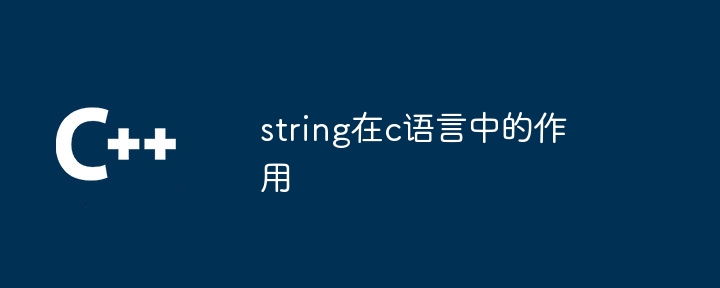
string represents a variable character array in C language, used to store and process text strings. Functions include: string storage and management, built-in string operation functions, automatic memory allocation and release, data transfer and communication input and Output

The role of string in C language
stringData type in C language represents a variable character array used to store text strings. It is widely used in C language programming to handle string operations and text data.
Function:
Usage example:
<code class="c">#include <stdio.h>
#include <string.h>
int main() {
// 声明一个string
char name[] = "John Doe";
// 打印string
printf("Hello, %s!\n", name);
// 比较string
if (strcmp(name, "John Doe") == 0) {
printf("Name matches.\n");
}
// 连接string
char new_name[50];
strcat(new_name, name);
strcat(new_name, " (New)");
printf("New name: %s\n", new_name);
return 0;
}</code>Summary:
The string data type is crucial in C language, It simplifies string processing, provides built-in manipulation functions, supports dynamic memory allocation, and facilitates the exchange and manipulation of text data in programs.
The above is the detailed content of The role of string in c language. For more information, please follow other related articles on the PHP Chinese website!




